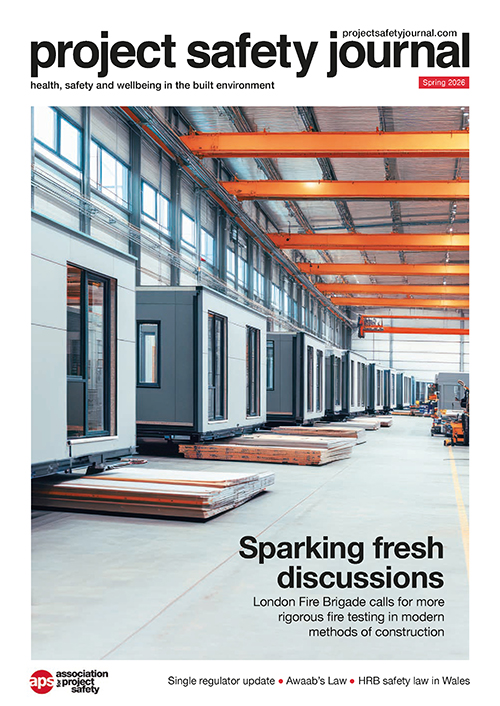Construction is feeling the effects of sluggish growth, rising costs and skills shortages – and delays in planning approvals caused by new safety legislation are not helping. But that doesn’t mean compliance is bad for business, argues Rachel Davidson
Construction Leadership Council (CLC) co-chair Mark Reynolds recently warned members of the parliamentary Housing Communities and Local Government Committee that long delays in gaining sign-off for fire safety design were directly responsible for a wave of job losses across the industry.
He said some higher-risk building (HRB) approvals were taking up to 48 weeks at planning Gateway 2 – four times the period specified in the building regulations.
Additional costs to clients are running into millions of pounds and many projects are becoming unviable. A shortage of skilled people able to assess and sign off applications is at the root of the problem, but so is the industry’s failure to provide the necessary fully planned detail.
Reynolds said he had some sympathy for the Building Safety Regulator (BSR) because of multiple teething problems setting up the new system, but said the industry was increasingly confused about what it was being asked to do and needed better guidance.
Reality check
This is a reality check for our politicians, but it is not them who will deliver safer buildings. Few understand how the construction process works, but by accepting all the recommendations of the Grenfell Tower public inquiry and its share of the blame for past failings, the government can claim it is already playing its part.
The Building Engineering Services Association (BESA) is also trying to make sense of it all and ensure our members are able to meet their responsibilities.
There are plenty of challenges in the process, but the fundamental weakness BESA members see is the failure of clients to engage with the new safety culture.
Many simply see the mounting costs and delivery obstacles – and look for ways to evade them rather than working with us to ensure a better outcome for all.
That is why BESA will soon be launching a ‘Compliant Client’ campaign. This is designed to educate (not intimidate) and point out why it is important that clients get behind this and why it is in their best interests.
Clients – be they developers, major contractors, housing associations, landlords, commercial or residential tenants – do not want poor quality, unsafe buildings. There is no financial or social rationale that makes a bad building a good investment.
Value engineering designs
So, getting this right is the best way to get the best return on your investment (ROI). Yet, many clients start value engineering designs as soon as they see them – long before anyone puts a shovel in the ground. Why?
If a good quality, safe building is predicted (at concept design) to cost, say, £10m to build, why should a client expect to get the same building for £9m? They won’t. The result will be a different building – a worse one.
Obviously, there is a trust element here – and the industry has lost the trust of many of its clients, but surely the solution is not to immediately start arguing about the price but rather focus on getting the design right.
And that is exactly what the legislation and the BSR is asking for. Proper, detailed and fully developed design at each planning gateway. Surely that is what we should be striving for anyway, with or without legislation?
Necessary expertise
The current delays at Gateway 2 will only be reproduced at Gateway 3, leading to more hold-ups at the building occupation stage, if we don’t focus on getting design details right from the outset.
However, quality does not come cheap. The process will not improve if the current payment model continues. People need to be paid fairly and promptly to put in the time and recruit the necessary expertise.
If you start off from a position where you are immediately price-gouging, you perpetuate the corner-cutting culture that got us into this mess in the first place.
You will also cost yourself a lot more further down the line, including avoidable remediation work and ongoing underperformance of building systems. The investment up front pays off in the long term… and you will be a compliant client on the right side of the law and the moral argument.
Because let’s not forget why we are here. Grenfell shone a light on why proper design work and accountability matter. So, clients, we are where we are. But without you, we will not get to where we need to be.
Rachel Davidson is director of specialist knowledge at the Building Engineering Services Association (BESA).












